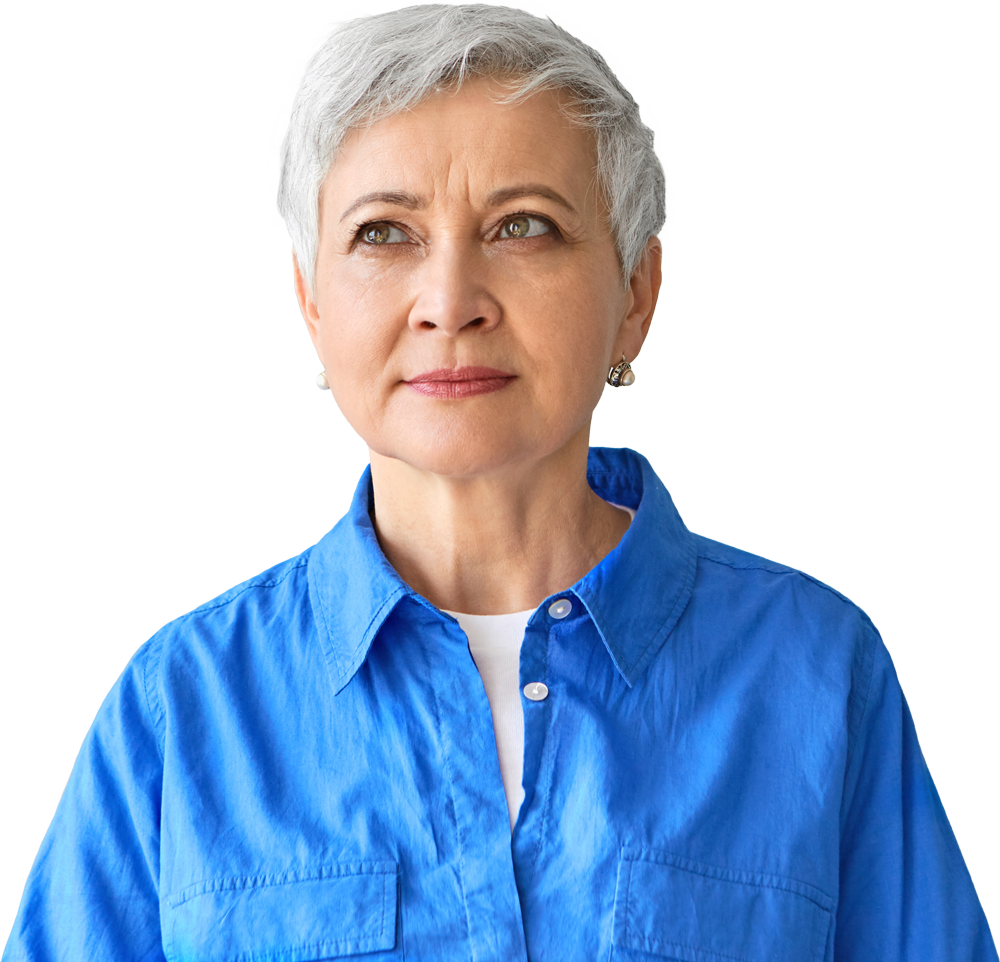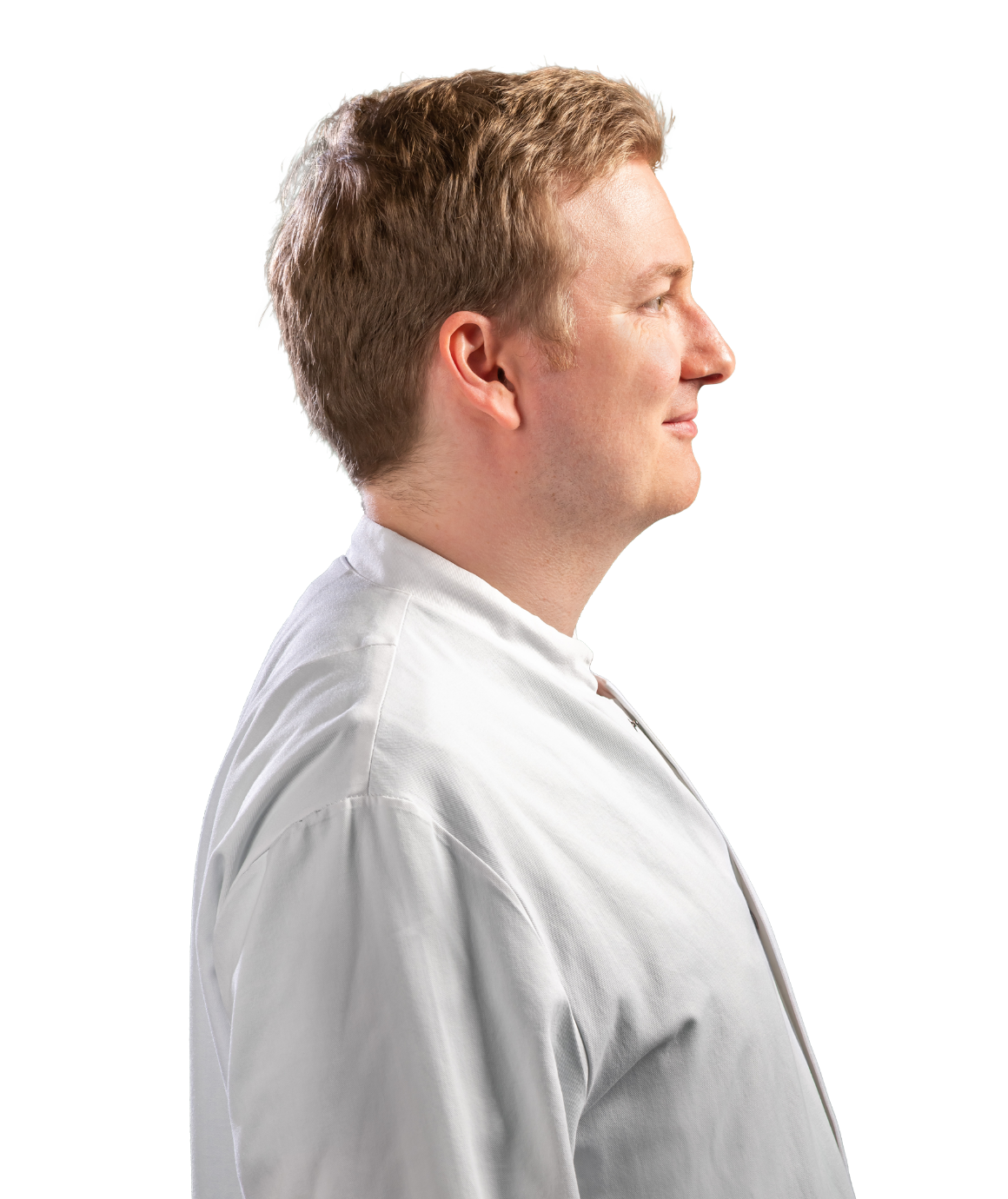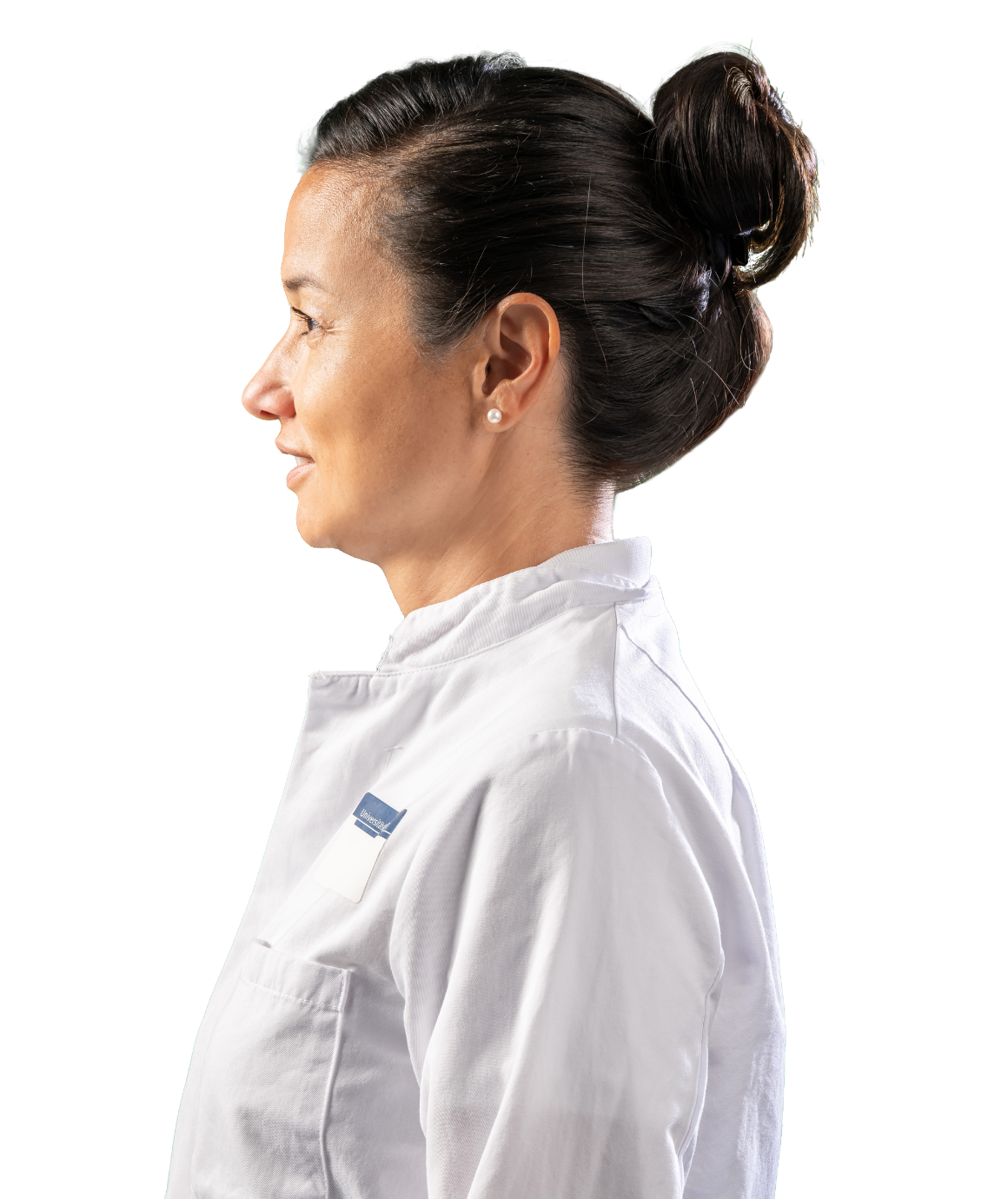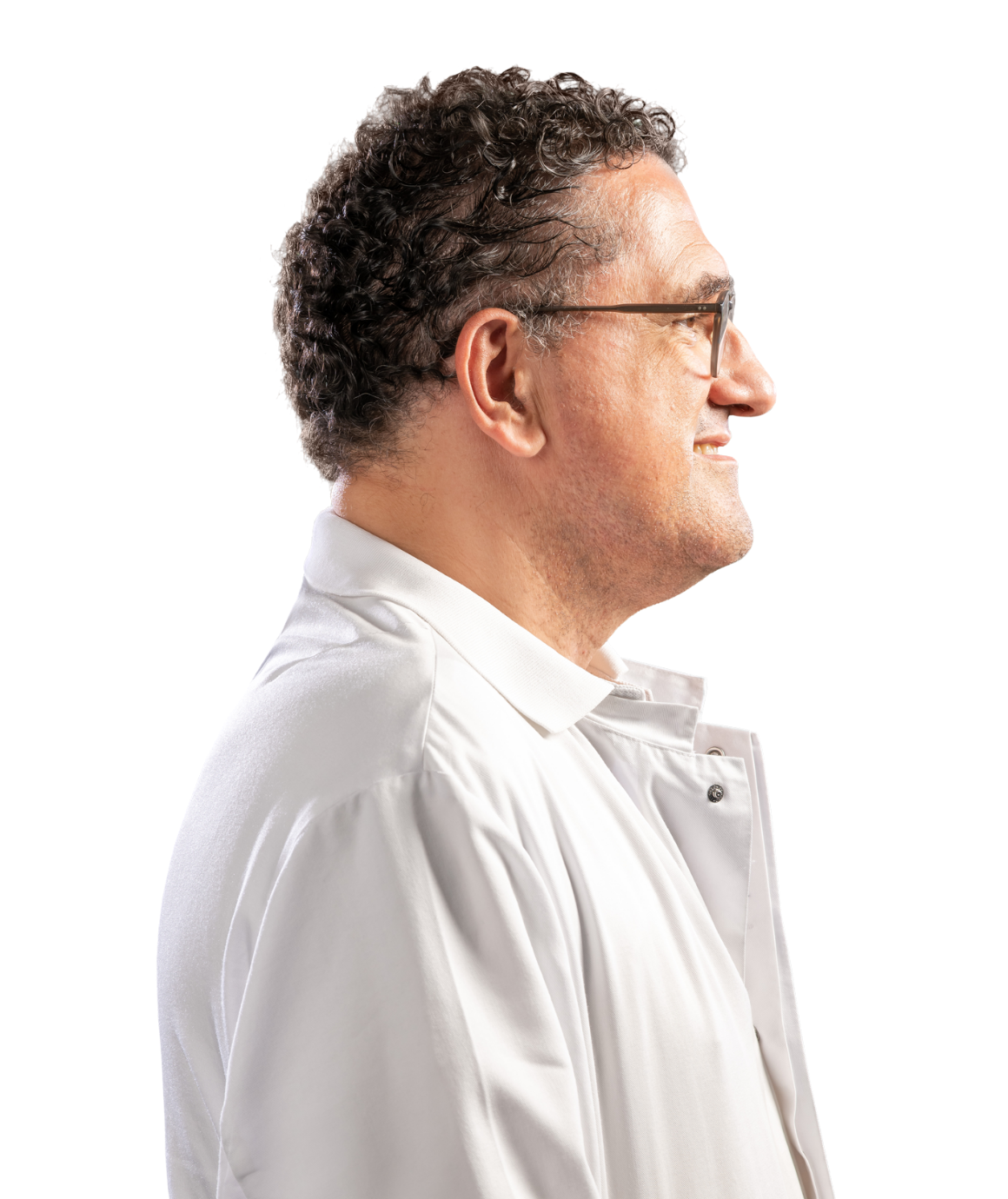

Saving lives together
A report from the emergency room
When the fictitious emergency patient Sabine Schäfer arrives at Heidelberg University Hospital (UKHD), all employees in the interdisciplinary emergency room immediately know what to do. With their expertise, dedicated commitment, and their passion for their work, they do everything possible to help the patient immediately. Yet what appears to be a centrally orchestrated process only functions because everyone knows precisely what to do. An interactive physician discharge letter allows you to look behind the scenes and shows the perspectives.
Dear Colleague, This is our report to you on your patient Sabine Schäfer, born on February 26, 1965, who presented to our ER (emergency room) at 8:04 PM on June 17, 2022. Diagnosis on Admission Other and unspecified abdominal pain Diagnoses Non-ST elevation (NSTEMI) myocardial infarction Medical History and Course Brought from her home by the rescue service due to the sudden onset of severe abdominal pain. At the triage point a slightly elevated respiratory frequency was noted, the remaining parameters were within the normal range. Due to the severe pain, the patient was sent to the surgical emergency room. Vital signs on admission 137/101 mmHg, 110/min, 37.0 °C, 21 breaths/min
Physical examination findings on arrival at the in the Surgical Outpatient Clinic In the surgical emergency room, the resident physician examined the patient. During the examination the patient complained about feeling slightly dizzy and a stabbing pain in the epigastrium. No resistances were palpable, no pathological bowel sounds were heard in auscultation. The physician performed an ultrasound study and requested the laboratory (chemical) examination of the blood sample. Medication in the Surgical Outpatient Department: 20:18 PM: 1000 mg Novalgin, intravenously as a brief infusion.
| Laboratory Values on Admission to the Surgical Outpatient Department: | |
|---|---|
| Sodium | 133 mmol/l |
| Potassium | 5.02 mmol/l |
| Glutamate-Oxalacetate-Transaminase (GOT) | 54 U/l |
| Alkaline Phosphatase (AP) | 130 U/l |
| Gamma-Glutamyltransferase (yGT) | 58 U/l |
| C-reaktive Protein (CRP) | 14.7 mg/l |
| Hemoglobin | 12.9 g/dl |
| Partial Thromboplastin Time (PTT) | 19.2 |
| Troponin T (TNT) | 20.08 pg/ml |
Examination Findings in the Surgical Outpatient Department The patient is conscious. Ultrasound images did not disclose any injuries or diseases in the abdomen. There are no abnormal findings for the abdomen. High-sensitivity cardiac troponin increased. The other routine values were within the normal range. In response to further questions by the senior physician, the patient reported stabbing pain in the left shoulder, which began three days ago. The senior physician ordered an EKG due to the suspicion of a myocardial infarction and the transfer to the CPU.
Medical History and Course in the CPU
At 9:29 PM the patient was transferred from the Surgical Outpatient Department to the CPU. A 15-channel EKG test was performed immediately as well as a second highly sensitive cardiological troponin test.
EKG
Rhythm: Sinus tachycardia, heart rate: 110/min, QRS complex: normal. ST segment: normal. T wave: normal.
HSTNT (high sensitivity troponin T test)
17 June 2022 at 9:12 PM troponin T (TNT), highly sensitive in plasma 20.08 pg/ml - <14
17 June 2022 at 10:17 PM troponin T (TNT), highly sensitive in plasma 31.2 pg/ml - <14
Evaluation (Epicrisis) Since her admission the patient has been mainly stable in terms of cardiorespiratory activity. The EKG did not disclose any signs of ischemia typical of an infarction. Hs-c troponin rose over time from 20.08 to 31.2 pg/ml and is therefore an unambiguous sign of an infarction. Treatment Recommendation Cardiac catheter exam within 24 hours. Sincerely,
Prof. Dr. E. Giannitsis
Senior Chest Pain Unit
Dr. L. Liesenfeld
Resident Physician Surgical OP Department
(Ms.) Dr. C. Leowardi
Senior Physician Surgical OP Department
H. Schwerdt
Head of Nursing







